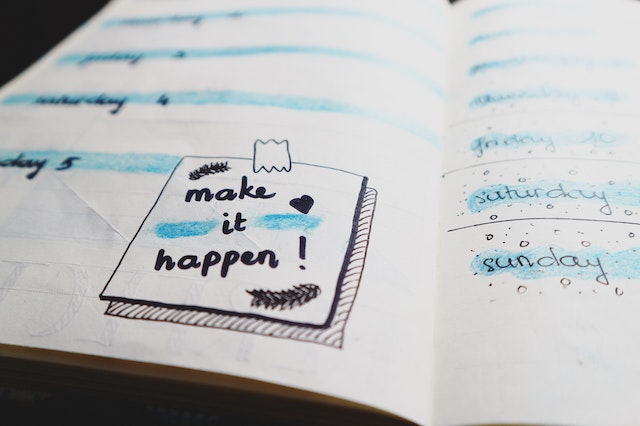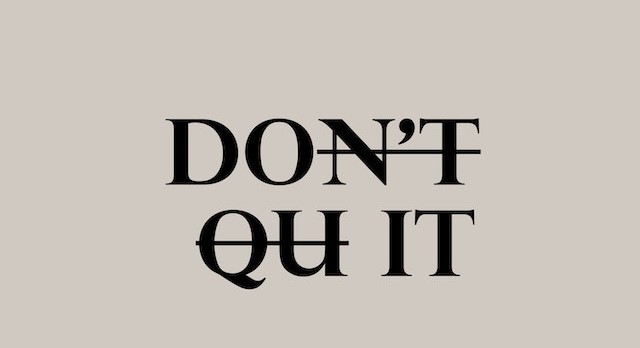
How to Successfully Build and Follow an Effective Work From Home Habit
Are you having a tough time staying motivated and getting your tasks done while working from home?
Don’t worry, you’re not alone. There’s no shame in having unproductive days and feeling as if you can’t get anything done.
With that in mind, don’t settle for an unproductive lifestyle when you can take the steps needed to reorganize your life by building effective habits and sticking to them.
For the purpose of building these beneficial habits, this two-step guide should teach you everything you need to know:
- Step 1: Focus on building and setting up a habit that is structured specifically for you
- Step 2: Discover the ways by which you can hold yourself accountable and follow your habits
No matter what your profession or motivation behind developing productivity and time management hacks such as habit building, this guide will help you accomplish whatever goal you set your mind to.
Let’s dive in…
Table of Contents
Setting Up Your First Habit

As the famous saying goes, every journey starts with a first step. Start by focusing on developing one single habit, rather than many at a time. If you don’t, you may soon find yourself feeling overwhelmed and unable to stick to your goals.
Ironically, understanding why you shouldn’t build multiple habits at one time is the first step towards learning how to actually build a habit that can stick.
NPR covered a study performed by a Stanford University professor named Baba Shiv. His focus was on the Prefrontal Cortex of the brain which is responsible for keeping you focused and any short-term items the brain might be needed for.
This is the area commonly associated with willpower.
Professor Baba Shiv wanted to test just how easily willpower could be crumpled. He took several of his students and divided them into two groups.
- Group 1: This first group was given a two-digit number to remember
- Group 2: This second group was given a seven-digit number to remember
After assigning each group their number, he sent them down the hall and offered them a choice of snack: cake or fruit. Can you guess who picked which?
As it turns out, students given a seven-digit number were twice as likely to pick the cake than they were the fruit. The takeaway from his experiment was clear: willpower can be crumpled by excessive cognitive load.
What does that mean?
In short, overloading your brain with tasks or trying to remember a million different things you need to do will most likely cause you to not do them.
Your brain is a muscle and needs to be trained like any other muscle in your body. If you truly want to get serious about building a habit, then start slow.
Here are a few steps to follow that can help you successfully build an effective habit:
Step 1: Identify Your Cue

Charles Duhigg is a Pulitzer-prize-winning reporter who wrote a book titled The Power of Habit (you can find more books on this subject in this book list). He outlined that there are three main parts to a habit:
- Cue: An action directly preceding the habit
- Routine: The habit itself
- Reward: Your sense of positive reinforcement
Before even looking into starting your first habit and sticking with it, you need to focus on your cue. If you want to quit drinking coffee and start your days with a glass of water, for example, what is your cue?
Waking up and walked to the kitchen.
This action primes your brain and gets it ready for that oh-so-sweet cup of coffee. Changing your cue, however, will allow you to either change an existing habit or build a new one. Rather than walking to the kitchen when you first wake up, consider washing your face or hopping in the shower.
Better yet, put a glass of water right next to your bed each night so that you can drink it first thing after waking up. Too many people focus on the action of their habit and don’t realize that routines are more deeply ingrained in their minds than they could possibly imagine.
Start to build a habit by either creating or changing a cue that prepares your brain for what’s to come. As for the routine itself…
Step 2: Add an Accountability Clause
 One of the most important aspects of building a habit is tying some sort of accountability clause to the habit. You’re trying to train your brain to stick to something new, but if there is no consequence for not following your habit then there is also no incentive to actually do it.
One of the most important aspects of building a habit is tying some sort of accountability clause to the habit. You’re trying to train your brain to stick to something new, but if there is no consequence for not following your habit then there is also no incentive to actually do it.
Without a doubt, the best accountability clause is someone who lives in your household. Did you know that people actually act better when they are being watched?
Scientific American referred to a study in which researchers hung photos of eyes in a university cafeteria. During the times when the eyes were in the room, twice as many people cleaned their own mess up after eating. The eyes were also moved to different areas of the room to ensure there weren’t just some people who were cleaner than others.
When people have eyes on them, they are more likely to do something they should be doing. Now, it’s a lot to ask a friend or family member to sit by your side for the entirety of a day, but you don’t need to take it that far.
If you live with someone who is willing to help with your habit creation, find a way to make them useful. Perhaps your goal is to leave your phone upstairs while you are studying or working from home. Consider handing it over to a fellow co-worker or family member that you trust to keep it safe.
Regardless of what accountability clause you choose for your habit, ensure that the process of enforcing the habit is not entirely on your shoulders.
Step 3: Reward Yourself!

Every habit, good or bad, has a reward. For coffee drinkers, it’s the grogginess and disappearing headache. Focusing on the reward in your habit building is the second most important step.
Your brain needs to learn to expect something good to happen in return for accomplishing your habit for the day. One of the best ways to do this is known as habit points.
As covered by A Life of Productivity, the concept of habit points is simple. Identify a few things that you love to do, but that isn’t too productive. It could be watching a Netflix show or binging on some fantastic junk food.
These are going to be your rewards. Each time you complete your habit, give yourself a set number of points. When those points are up to a certain amount, you give yourself a reward.
Simple, right?
Make the larger rewards worth more points and the smaller rewards worth fewer points. By doing this, you will give your brain an incentive to remember the habit you are trying to build.
At this stage, you have set up the basics required to start your first habit. You have restructured your cue, tied your new habit to someone or something that can make you accountable, and developed a reward system.
With these in place, you’ve completed half the battle already. Sticking to your habit in the long term is the other half of the battle, but there are two strategies you can choose to follow to make your habit stick.
Sticking to Your New Habit
 You can build a killer habit and employ all the accountability from your friends that you like, but if you don’t develop a habit and stick with it in the long term then it will all be for nothing.
You can build a killer habit and employ all the accountability from your friends that you like, but if you don’t develop a habit and stick with it in the long term then it will all be for nothing.
A study conducted in 2009 by University College London focused on how long it would take 96 participants to develop a habit through repetition. In the end, the range was a short 18 days to a whopping 254 days.
Fortunately, the average was a more doable 66 days.
While the tips mentioned above pertain to building a habit initially, they are hard to use over time (especially if you fall on the 254 days side of the spectrum). With that in mind, here are two of the best ways to go about enforcing your new habit in the long term:
Habit Tracking
![]()
Sometimes, creating a reward system isn’t quite enough to stick to a habit. This strategy is a great Kickstarter for your habit. However, in the long run, it may become less effective as the novelty of the habit and reward wears off.
Habit tracking can give you a physical copy of your hard work and be a helpful piece of motivation that keeps you moving forward.
So, how do you go about habit tracking?
Grab a piece of paper or a post-it and follow the below steps to become a successful habit tracker in no time:
- Write your habit at the top of a page
- List the days of the week vertically on the left side
- Draw an empty check-box next to each day of the week
- Place the paper or post-it somewhere you will see it every day (such as the bathroom mirror)
Every day that you follow your habit, give yourself a checkmark. That’s it. That’s all it takes to track your habits. If you’re more of a digital person, you can use time management apps to keep track of your habits and goals. Although these time tracking apps have been initially designed to help people keep track of their tasks and time, their features can be adapted for habit tracking.
The reasoning behind habit tracking is relatively clear: daily reminders and satisfaction.
By placing your habit tracking sheet somewhere you see daily, you’re guaranteed a reminder potentially multiple times a day. Additionally, checking off a box gives you physical validation and a feeling of satisfaction after completing your goal.
To take habit tracking to the next level, stack your post-its or papers next to each other week after week to multiply the motivation you’ll feel when looking at your completion streak.
Start Slow and Ramp Up

Even the best of the best may miss a day while trying to build a habit. While it’s important to get back on your schedule, don’t beat yourself up for a small slip-up.
Roadblocks and obstacles are inevitable when trying to create a new routine and build a habit, especially if that habit strays far from your normal day-to-day life. With that said, remember the following advice:
Consistency is key.
Missing one day is alright but using it as an excuse to miss a full week of developing your habit should be unacceptable in your mind. Plan for potential roadblocks and how you will overcome them.
Break down your habit into smaller pieces. As mentioned earlier, overloading your brain will contribute to a lack of motivation. Identify which parts of your habit will be the most difficult for you to follow.
Going back to the coffee example, perhaps the headaches resulting from caffeine withdrawal will be one of the biggest obstacles a person in this position may face. Identify the obstacles you may face in your own habit in the long term and how you can overcome them.
For coffee drinkers, doing the following will result in fewer headaches than going cold turkey:
- Start by not drinking coffee past 3 p.m. for the first week
- Advance to not drinking coffee after noon the second week
- Only have one cup of coffee right when you wake up by the third week
- Try to swap coffee for a substitute by the fourth week
If you notice headaches or caffeine withdrawal symptoms occurring at any of the stages, expand that stage by a week. Building a new habit is difficult when you try to do everything at once. As discovered in the study by Professor Baba Shiv, you can’t overload your brain.
Break your habit into bite-sized chunks and space out your habit goals across multiple weeks. This will help you get acclimated to your new habit while also reaffirming in your mind that the habit-building process is not something that can be done overnight.
Be Honest with Yourself
 When it comes to successfully building and sticking to a habit, you can either be your own best friend or your own vice. You have the power to make and stick to a habit, but you need to make the conscious decision that it is something you want to do.
When it comes to successfully building and sticking to a habit, you can either be your own best friend or your own vice. You have the power to make and stick to a habit, but you need to make the conscious decision that it is something you want to do.
Productivity hacks are not for everyone.
However, if you decide to set your mind on developing a new habit, using the above pieces of advice can help you build the habit in the short term and stick with it in the long term. Understand that it’s a difficult yet rewarding process.
Most of all, don’t be afraid to take that first step toward improving your life.
About the Contributor
 Georgi Todorov is the founder of ThriveMyWay, a place for online entrepreneurs, bloggers, SEO specialists, and freelancers to find success in their own way.
Georgi Todorov is the founder of ThriveMyWay, a place for online entrepreneurs, bloggers, SEO specialists, and freelancers to find success in their own way.
LinkedIn: Georgi Todorov
Twitter: @GeorgiTodorov

